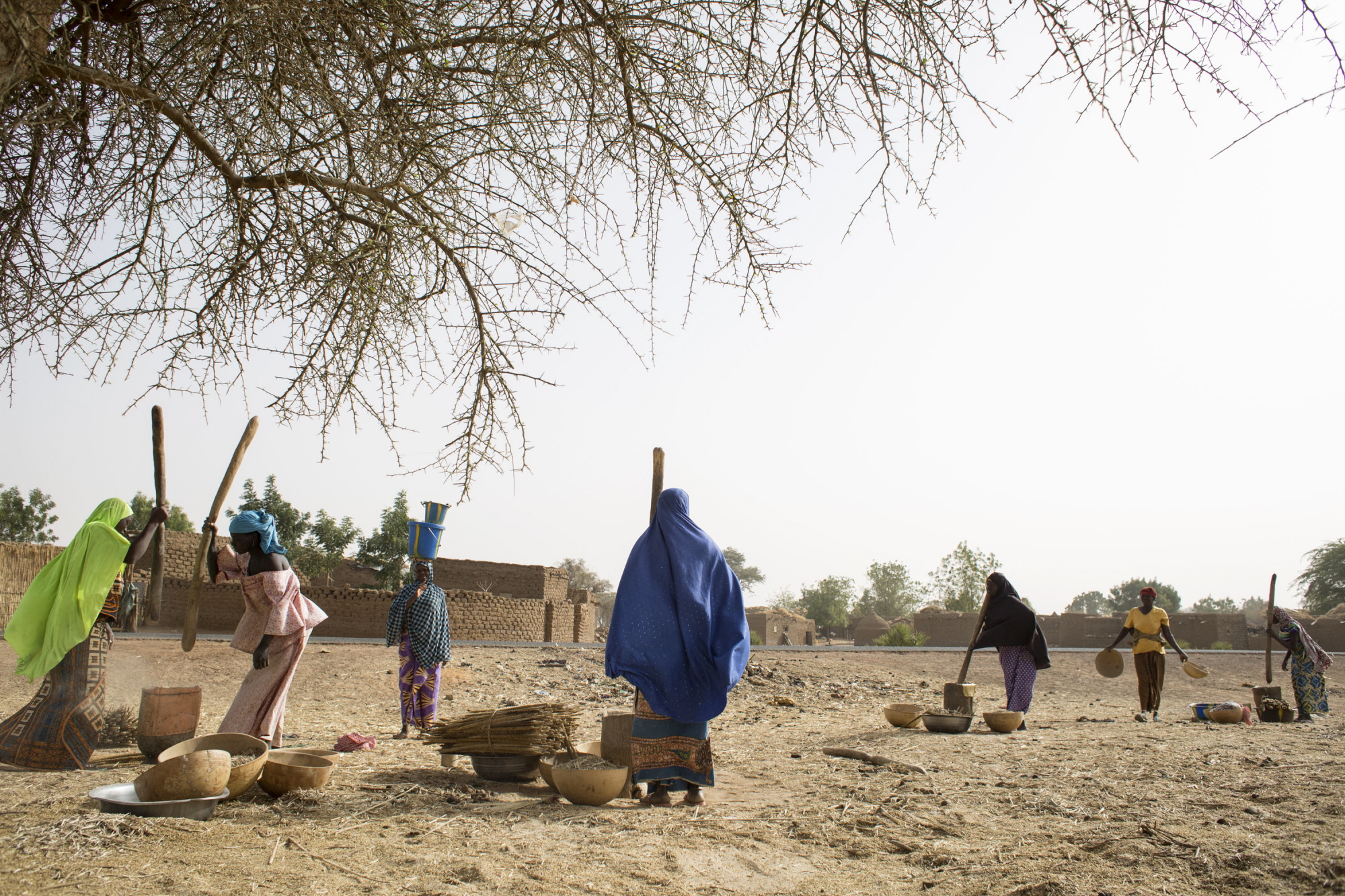Making Niger more resilient to climate risks

Climate change will likely increase the frequency and severity of extreme weather events such as flooding and drought in dry lands of Sub-Saharan Africa and particularly in Niger, resulting in large economic and social losses. Where Government resources are limited, climate change will affect public revenues and disrupt public spending for humanitarian assistance. That is why it is essential that countries continue to invest in climate change mitigation and adaptation measures, resilience building and sustainable livelihoods.
Climate smart agriculture is the focus of a new investment project designed by the Government of Niger and the World Bank with technical support from FAO.
The project, known by its acronym PASEC (Projet d’Appui à l’Agriculture Sensible aux Risques Climatiques), seeks to: (i) scale up climate smart investment to sustainably boost agricultural productivity and Nigeriens’ resilience to climate risks; (ii) provide capacity building and improve service delivery for mainstreaming climate smart agriculture; and (iii) improve the country’s ability to respond quickly and effectively to crises.
With a USD 111 million loan from the International Development Association Bank (IDA) and an additional USD 30 million from the Millennium Challenge Corporation (MCC), the five-year project will begin in 2017.
“The Government is committed to put in place policies to facilitate investment in climate smart agriculture” said Michel Disonama, a FAO National Programme Officer in DRC who joined the FAO’s Investment Centre team in this mission.
PASEC will promote a range of agricultural practices to improve resilience to climatic factors and improve farmers’ incomes – from using drought-tolerant seeds, increasing irrigation and intensifying crop-livestock systems, to protecting watersheds from erosion, engaging in agroforestry and conservation agriculture and reclaiming degraded agro-pastoral lands, among others.
In supporting the Government’s High Commissary for the 3N Initiative (‘Nigeriens Nourish Nigeriens’) in partnership with the World Bank to develop the project, an FAO Investment Centre team in close collaboration with the FAO country office, conducted a comprehensive economic and financial analysis, prepared the project’s budget and estimated the project’s potential to mitigate greenhouse gas emissions.
“The FAO country office has extensive experience in Niger, so this was a very good opportunity to build strategic partnerships, which are important for project effectiveness and for achieving results,” said Julien Vallet, an economist who led the FAO Investment Centre team.
As a result, FAO will provide further technical assistance to support the PASEC during its implementation. Through a Unilateral Trust Fund, FAO will be assisting in developing the capacity of national extension services and farmer organizations to demonstrate climate smart agriculture techniques via farmer field schools, helping to get more farmers using those techniques.
FAO will also support Dimitra community listeners’ clubs to improve access to information and knowledge, and empower rural communities, especially women, to participate fully in the development decisions affecting their lives.
Finally, FAO will strengthen national capacity using various tools developed by FAO, including RuralInvest - a participatory and inclusive tool to support service providers, project staff and financial institutions to prepare small- and medium-scale investment proposals, and the Ex-ante Carbon Balance tool (EX-ACT) to appraise and monitor the project’s carbon footprint.
PASEC is expected to benefit farmers and communities, helping them to boost food production and improve nutrition, increase incomes and become more resilient to climate change risks. It will also benefit decentralized authorities, who, thanks to training and institutional support, will be in a better position to mainstream climate smart agriculture into communal investment plans.
By protecting natural resources and reducing greenhouse gas emissions, PASEC activities will also contribute to achieving international climate agreements discussed at UNFCC’s COP21 in Paris.
Contacts:
Julien Vallet Michel Disonama
Economist, TCIA Agricultural Economist, TCIA
[email protected] [email protected]
